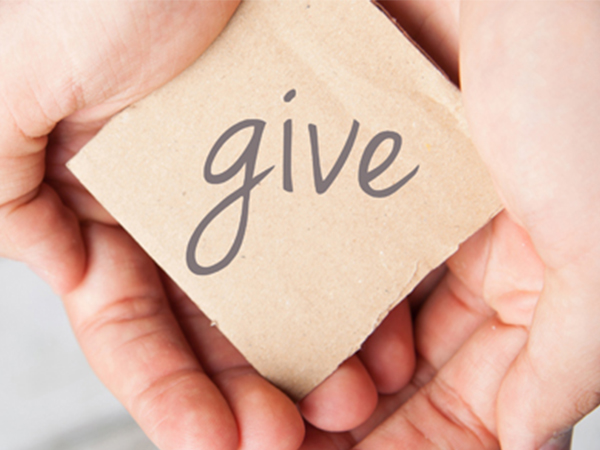Desirée A. H. Walker
Empowering Survivors Through Education and Advocacy

At the age of 38, Desirée was diagnosed with breast cancer. Shortly after her eighth cancerversary, she received news the breast cancer reoccurred. Now, Desirée serves as a patient advocate by openly speaking about her diagnoses to audiences both nationally and internationally, reviewing research protocols and working with research teams.
Desirée didn’t foresee herself developing a passion for advocacy. She says, “I never thought of advocacy—or patient advocacy—growing up.” After her breast cancer diagnosis, she realized she needed to educate herself on the disease since she knew nothing about it and wanted to know her options to prepare for upcoming consultations with physicians as she built her health care team.
“I realized it was important to get out there and tell my story.” She feels that in the African-American and African-Caribbean communities, cancer isn’t always spoken about openly and many are not aware that young adults can be diagnosed with breast cancer too. Desirée says, “I took it upon myself to address this stigma by not being silent.”
Eighteen months after her initial diagnosis she connected with her first organization, the Witness Project® of Harlem and began to develop her voice as a patient advocate. This organization raises breast and cervical cancer awareness through their outreach efforts in New York City’s African-American and African-Caribbean communities. She also serves on the Young Survival Coalition’s (YSC) Board of Directors as president. She is a member of the National Coalition for Cancer Survivorship’s (NCCS) Cancer Policy and Advocacy Team (CPAT) Steering Committee and two others; the Central Institutional Review Board for the National Cancer Institute; the Society of Integrative Oncology’s (SIO) Patient Advocate and Research Committees, it’s Health Equity Task Force; and SWOG’s Recruitment and Retention and Patient Advocate Committees among many other roles.
Desirée is passionate about addressing cancer health disparities experienced by underserved communities especially those of African ancestry. She serves as a SHARE support group facilitator for women of African heritage who have been diagnosed with breast or ovarian cancer to address an unmet need. She says, “There are many issues. Many people are not well-informed about the diseases and cancers that plague their community; the signs that medical attention should be sought and pain should not be the norm; how to identify the best provider for their situation and that may mean going outside of their neighborhood for care; what questions they should ask, how to advocate for themselves and the need to share in the decision-making once they have all the facts.” She mentions other differences in health care that BIPOC communities face as barriers—access to quality screenings, access to quality care, inadequate or no insurance coverage, health care providers lacking cultural competence and not being offered clinical trials as a treatment option among others.
As Desirée began to rebound from her second bout with breast cancer, she decided to get involved in research and legislative advocacy. While attending the San Antonio Breast Cancer Symposium in 2012, she met Karen Russell Mills, manager, Patient Advocacy Program at the AACR. Karen introduced Desirée to the AACR Scientist↔Survivor Program, encouraged her to apply and, thereafter, the relationship with AACR began. She has attended several AACR Hill Days, which are an annual event that brings a group of AACR members to Washington, D.C., to advocate for robust, sustained and predictable funding for cancer research. Since 2013, she has attended a few AACR Annual Meetings and The Science of Cancer Health Disparities in Racial/Ethnic Minorities and the Medically Underserved Conferences.
Desirée has provided a patient advocate perspective at the NCCS’ Cancer Policy Roundtable, MSK Cancer Center’s National Minority Cancer Awareness events, FDA-Duke Accelerating Anticancer Agent Development and Validation (AAADV) Workshops and AACR’s 12th Science of Cancer Health Disparities in Racial/Ethnic Minorities and the Medically Underserved Conference to name a few.
Desirée understands that survivor voices are extremely important in legislative advocacy, explaining, “If a survivor is given a platform to tell you what their life has been like after a diagnosis, it’s now more personal. Being able to tell a story is important. Stories are captivating. Stories are meaningful. Stories can influence.”
In the coming years, she is focusing her attention on influencing a shift in the clinical trial and research arena to include more diverse participants. “Many researchers are not giving enough thought to how they’re going to recruit and retain diverse participants in their clinical trials and the value to science. One of the things that is fueling me is the idea of diversity, equity, and inclusion in these trials, in research overall and the benefits for all of us versus a select few.”
Desirée plans to continue to use her platform to be a voice for the voiceless and pay it forward by educating and empowering patients everywhere. She says, “Information will lead to your empowerment and your ability to discern what’s right for you.”
Learn about the AACR SCIENTIST↔SURVIVOR PROGRAM: https://www.aacr.org/patients-caregivers/patient-advocacy/scientist-survivor-program/


